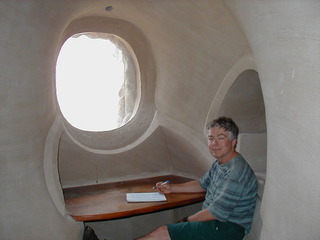
Tuesday, December 12, 2023
Tuesday, November 14, 2023
Elder care, a resource guide
A few years ago, Tumblr user ms-demeanorpublished a free "workbook on the kind of bullshit you need to do when someone you love dies", available in two different versions as PDFs on Google Drive. One is DeathSucks.pdf, a "version with lots of swearing at the useless, shitty situation you're in"; the other is SayingGoodbye.pdf, a "version with a fair amount of black humor but no cursewords"(except she missed one f-bomb). Topics include "Prepare to spend a long and miserable time on the phone," "Depressing Mad Libs" (obituary templates), "So You Suddenly Have To Become Some Kind of Hacker" about getting into online accounts, and "How to plan a non-religious death party". It is USA-specific in some parts.
Wednesday, October 04, 2023
The science of reading
Saturday, August 26, 2023
Climate collapse and health can both be addressed by changing the food system
plant based eating is good nutrition and reduces environmental pressuresThe impact of agriculture on climate change is significant. According to the Environmental Protection Agency (EPA), the agriculture sector is responsible for 10 percent of the total U.S. greenhouse gas emissions, after transportation (29 percent), electricity production (25 percent), industry (23 percent), and commercial and residential usage (13 percent). However, according to Peter Lehner, managing attorney for EarthJustice, a nonprofit environmental law firm, the EPA estimate is “almost certainly significantly quite low.”
Lehner argues that most analyses exclude five unique sources of emissions from the farming sector: soil carbon (carbon released during the disturbance of soil), lost sequestration (carbon that would still be sequestered in the ground had that land not been converted into farmland), input footprints (carbon footprint for products used in agriculture, like the manufacturing of fertilizer), difficult measurements (it is harder to measure the carbon emissions of biological systems like agriculture than it is to measure the emissions of other industries that are not biological, like transportation), and potent gases (like methane and nitrous oxide).
Regarding that last source: Focusing on carbon dioxide as the main greenhouse gas often ignores powerful planet-warming gases that are emitted by agriculture and that are even more potent than carbon dioxide. Methane, which is emitted by the burps and farts of ruminants like cows and sheep, has up to 86 times more global warming potential over a 20-year period than carbon dioxide (and also impacts public health, particularly in frontline communities). Nitrous oxide, a byproduct of fertilizer runoff, has 300 times more warming potential than carbon dioxide (and also harms plants and animals).
“Most other studies, including by the [United Nations (UN)] and others, say that agriculture contributes much closer to 15 or 20 percent or more of world greenhouse gas emissions,” Lehner points out.
There has never been a better time to ditch meat. Climate change, health, and animal cruelty are among the many reasons why some leave animals (partially or entirely) off their plates.
Luckily, folks seem to be catching on. Vegetable-forward dishes are taking over food magazines, TikTok, and the restaurant scene. Along with some greater cultural acceptance of plant-based diets, there has been a growing recognition that animal-free cuisine can taste great; it doesn’t have to mean compromising on flavor.
“There is so much possibility of just feeding people a good dish,” food writer Alicia Kennedy told me in a recent conversation. “That can be an overlooked strategy of changing people’s minds. A lot of people never even notice if something is vegan or vegetarian until you tell them it is. They never even think about the fact that there’s no meat in it. They just ate it and it was good.”
Saturday, July 08, 2023
Public opinion, education and manufacturing consent
100 years ago, Walter Lippmann wrote Public Opinion. In it, he observed the universal human tendency to oversimplify, or ‘stereotype.’ His various observations were later given names in psychology: the Dunning Kruger effect; confirmation bias and cognitive dissonance, to name but a few. 1 Lippmann argued that the pervasiveness of this tendency to oversimplify, coupled with the increasing complexity of modern life, meant that the democratic model could not work: no person, however intelligent, could ever know enough about every matter of governance that concerned them. It was therefore not practical for any person to make important decisions regarding government and policy: democracy as it was, he felt, could not work
…
Wednesday, June 21, 2023
Meditation and non duality
You may have heard about this “non-duality” thing, or “non-dual meditation.” Perhaps you have heard rave reviews of a meditative state sometimes referred to as “non-dual awareness,” or “big mind” or “the natural state.” Maybe in connection with exciting-sounding phrases like “spiritual awakening” or “enlightenment.”
Sometimes, people hype it up in a way that can seem far-fetched. For example, nearly a full half of people who learned how to achieve non-dual awareness through a Sam Harris meditation course said it was the most important skill they’d ever learned in their lives. Presumably, these people have learned some important skills before, like job skills that allow them to feed themselves. So that’s quite an assessment. Also, non-dual teacher Loch Kelly says, “It gave me a way of relieving my underlying suffering and connecting to an inner joy that I didn’t even know existed.”
Okay, what is this thing? How is it done? What is “non-duality”?
